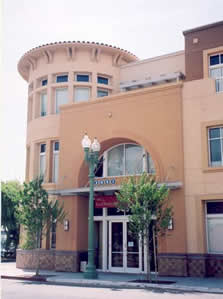Advancing Diabetes Self Management
La Clinica de La Raza Preventive Medicine Department Preventive Medicine Department
1515 Fruitvale Avenue
Oakland, CA 94601
www.laclinica.org
The Advancing Diabetes Self management (ADSM) program at
La Clinica de La Raza targeted Spanish-speaking
adults with type
2 diabetes who resided in Oakland, CA, and were patients at La Clinica’s Fruitvale and San Antonio clinics. Eighty-five
percent of
the patient population had family incomes at or below 150
percent of the federal poverty level, and the majority were either uninsured or enrolled in MediCal.
These patients often had
difficulties gaining and maintaining control over their diabetes
through the traditional health care system, so innovative
approaches were required.
The goal of the ADSM project was to improve health outcomes for
patients with diabetes by helping them successfully manage their
condition. The project used a multifaceted approach to improve
diabetes self management based on the Transtheoretical Model of Change (TTM), a theoretical model of behavior change. It
incorporated two elements missing from the standard medical
model of care: involvement of the patient’s community through
peer support and patient-centered
counseling. Providers at
La Clinica were trained in TTM principles and used them in their
clinical practices.
Patients were referred to the project by their primary care provider.
They then attended an orientation meeting facilitated by a
promotora, who provided support throughout the patient’s
involvement in the project. In addition, patients were invited to classes and groups designed to teach self management skills.
Patients who were also diagnosed with depression could attend
special support groups that were facilitated by a mental health professional and tailored for people who had both depression
and diabetes.
Despite a variety of challenges, the Fruitvale and San Antonio
neighborhoods were vibrant, lively communities where residents
were actively involved in improving their surroundings and their
lives. Through its use of TTM and empathetic promotoras,
La Clinica’s ADSM program built on this spirit and empowered
its patients to effectively manage their diabetes – one patient at a
time.
Summary
Key
Interventions
- Diabetes education classes
- Groups for people with different needs:
- "Circle of Friends” support group
- Meditation/ stress reduction group
- Cognitive behavioral therapy group for people with
depression and diabetes
- Walking club
- Family home visits
- One-on-one interaction with promotoras
- Patient-centered
staging and counseling based on the
Transtheoretical Model of Change
- Quarterly promotora-provider
case conferences
Key Accomplishments
- Implemented a theoretically framed program and
intervention activities
- Developed materials for providers that aid in assessing
patients’ readiness to change
- Trained and successfully integrated promotoras into the
primary care team
- Trained promotoras to work with patients on self
management plans
Lessons Learned
- Providers can gain greater understanding of patients' needs
and barriers to treatment adherence though working as a
team with promotoras
- Promotoras can successfully stage patients using the TTM
and use their patient's stage to intervene appropriately
- Working with promotoras in a patient-centered
program
improves patient outcomes when compared with care as
usual
- Promotoras can be trained to recognize and triage depression
and to participate in mental health interventions
Grantee Presentations
Program Materials
Program Publications
|

 Preventive Medicine Department
Preventive Medicine Department